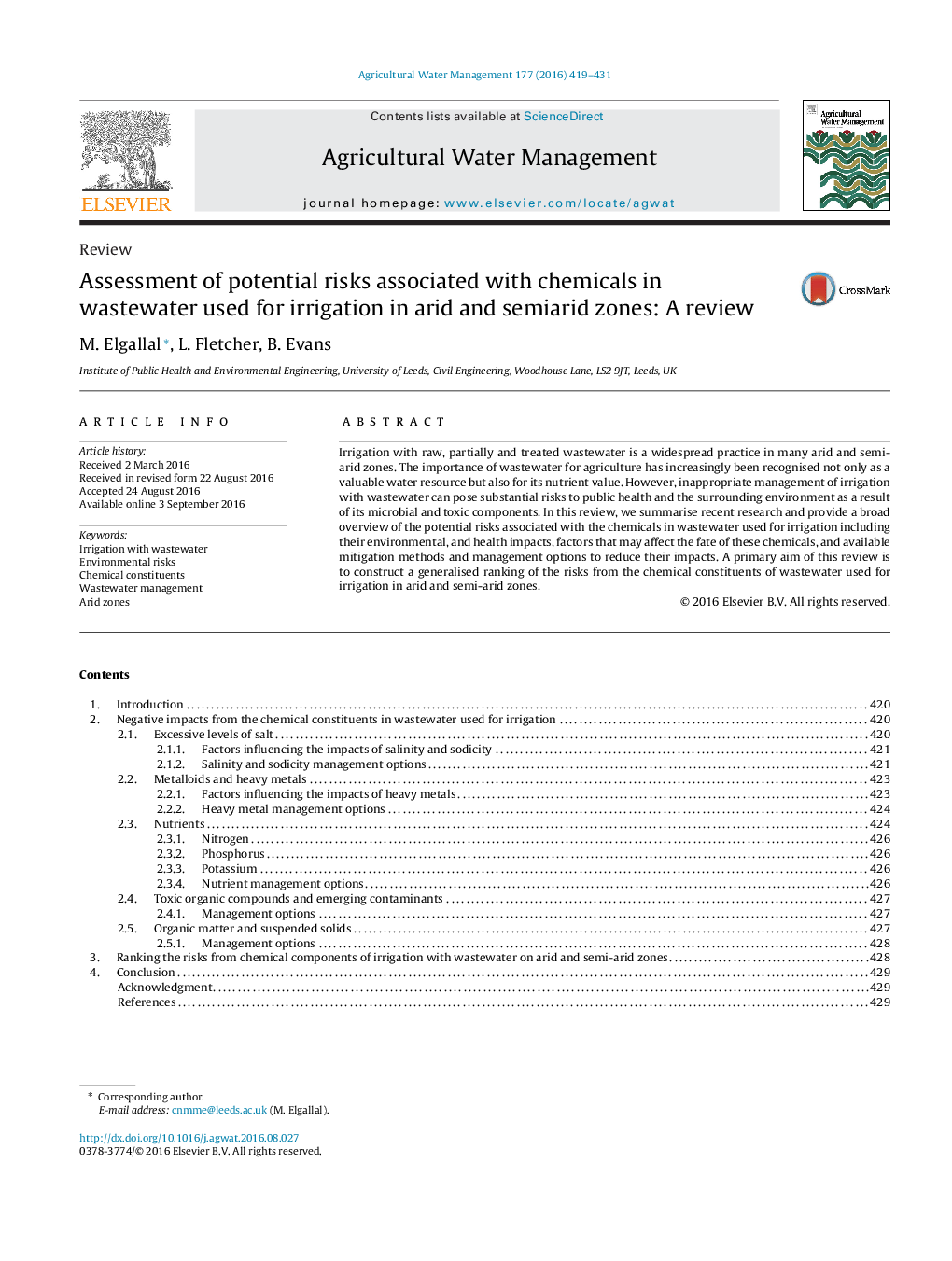| Article ID | Journal | Published Year | Pages | File Type |
|---|---|---|---|---|
| 6363449 | Agricultural Water Management | 2016 | 13 Pages |
â¢The review provides an evaluation of chemicals risks from irrigation with wastewater.â¢Excessive salt and excessive nitrogen are the most significant environmental risks.â¢Heavy metals may be recognised as health risk more than an environmental concern.â¢Understate factors influence emergent contaminants uptake by plant needs more studies.â¢Health risks of exposure to a mixture of emerging contaminants via food need more research.
Irrigation with raw, partially and treated wastewater is a widespread practice in many arid and semi-arid zones. The importance of wastewater for agriculture has increasingly been recognised not only as a valuable water resource but also for its nutrient value. However, inappropriate management of irrigation with wastewater can pose substantial risks to public health and the surrounding environment as a result of its microbial and toxic components. In this review, we summarise recent research and provide a broad overview of the potential risks associated with the chemicals in wastewater used for irrigation including their environmental, and health impacts, factors that may affect the fate of these chemicals, and available mitigation methods and management options to reduce their impacts. A primary aim of this review is to construct a generalised ranking of the risks from the chemical constituents of wastewater used for irrigation in arid and semi-arid zones.
